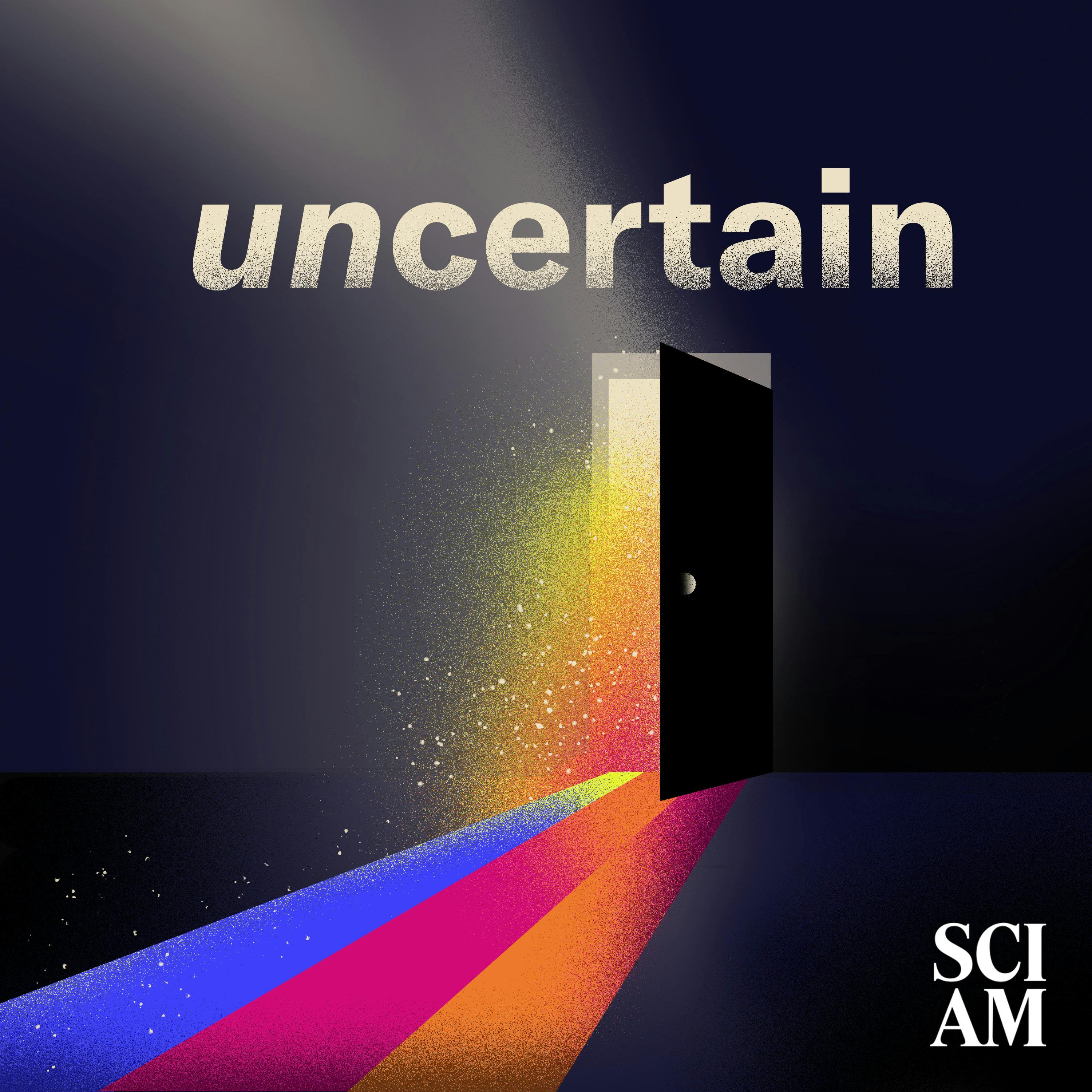

Science Talk
Scientific American
Science Talk is a podcast of longer-form audio experiments from Scientific American--from immersive sonic journeys into nature to deep dives into research with leading experts.
Episodes
Mentioned books

Apr 29, 2016 • 38min
Different Minds: The Wide World of Animal Smarts
Primatologist Frans de Waal discusses his latest book, Are We Smart Enough to Know How Smart Animals Are? (Norton, 2016).
Learn more about your ad choices. Visit megaphone.fm/adchoices

Apr 14, 2016 • 36min
The Perfect Bet: Taking the Gambling out of Gambling
Mathematician and author Adam Kucharski talks about his new book The Perfect Bet: How Science and Math Are Taking the Luck Out of Gambling (Basic Books, 2016).
Learn more about your ad choices. Visit megaphone.fm/adchoices

Feb 29, 2016 • 6min
Gorilla's Hum Is a Do-Not-Disturb Sign
If a socially prominent gorilla is in the midst of a meal, it may hum or sing to tell others nearby that it's busy at the moment and will get back to you later.
Learn more about your ad choices. Visit megaphone.fm/adchoices

Feb 25, 2016 • 37min
Bill Gates Wants a Miracle
Scientific American's energy and environment editor, David Biello, met with Bill Gates on February 22 to discuss tackling carbon emissions while at the same time making necessary energy available to ever more of the globe’s growing population.
Learn more about your ad choices. Visit megaphone.fm/adchoices

Feb 16, 2016 • 19min
From AI to Zika: AAAS Conference Highlights
Scientific American editors Mark Fischetti, Dina Maron and Seth Fletcher talk about the info they picked up at the just-concluded annual meeting of the American Association for the Advancement of Science in Washington, D.C. Subjects covered include gravitational waves, whether there's really a war on science, the growing concern over Zika virus, sea level rise and advances in artificial intelligence.
Learn more about your ad choices. Visit megaphone.fm/adchoices

Feb 11, 2016 • 17min
Gravitational Waves Found: Kip Thorne Explains
Scientific American's Josh Fischman talks with renowned astrophysicist and general relativity expert Kip Thorne about the discovery of gravitational waves by the LIGO Project, co-founded by Thorne.
Learn more about your ad choices. Visit megaphone.fm/adchoices

Feb 10, 2016 • 31min
The Big Gath Dig: Goliath's Hometown
Freelance journalist Kevin Begos talks with archaeologist Aren Maeir, from Bar Ilan University in Israel, at his dig site in Gath, thought to be Goliath's hometown and a major city of the Philistine civilization.
Learn more about your ad choices. Visit megaphone.fm/adchoices

Jan 12, 2016 • 9min
Roman Sanitation Didn't Stop Roaming Parasites
The University of Cambridge's Piers Mitchell, author of the 2015 book Sanitation, Latrines and Intestinal Parasites in Past Populations, talks about the counterintuitive findings in his recent paper in the journal Parasitology titled "Human parasites in the Roman World: health consequences of conquering an empire."
Learn more about your ad choices. Visit megaphone.fm/adchoices

Dec 20, 2015 • 33min
Evolution Still on Trial 10 Years after Dover
Evolutionary biologist Nicholas Matzke talks about the Kitzmiller v. Dover evolution trial on the 10th anniversary of the decision. He advised the plaintiffs while working for the National Center for Science Education. He also discusses the continuing post-Dover attempts to get creationist narratives taught in public school science classrooms.
Learn more about your ad choices. Visit megaphone.fm/adchoices

Dec 15, 2015 • 16min
Lifting the Visor on Virtual Reality
Ken Perlin, a New York University computer science professor and virtual reality pioneer, talks with Scientific American tech editor Larry Greenemeier about the state of virtual reality, its history and where it's heading
Learn more about your ad choices. Visit megaphone.fm/adchoices


